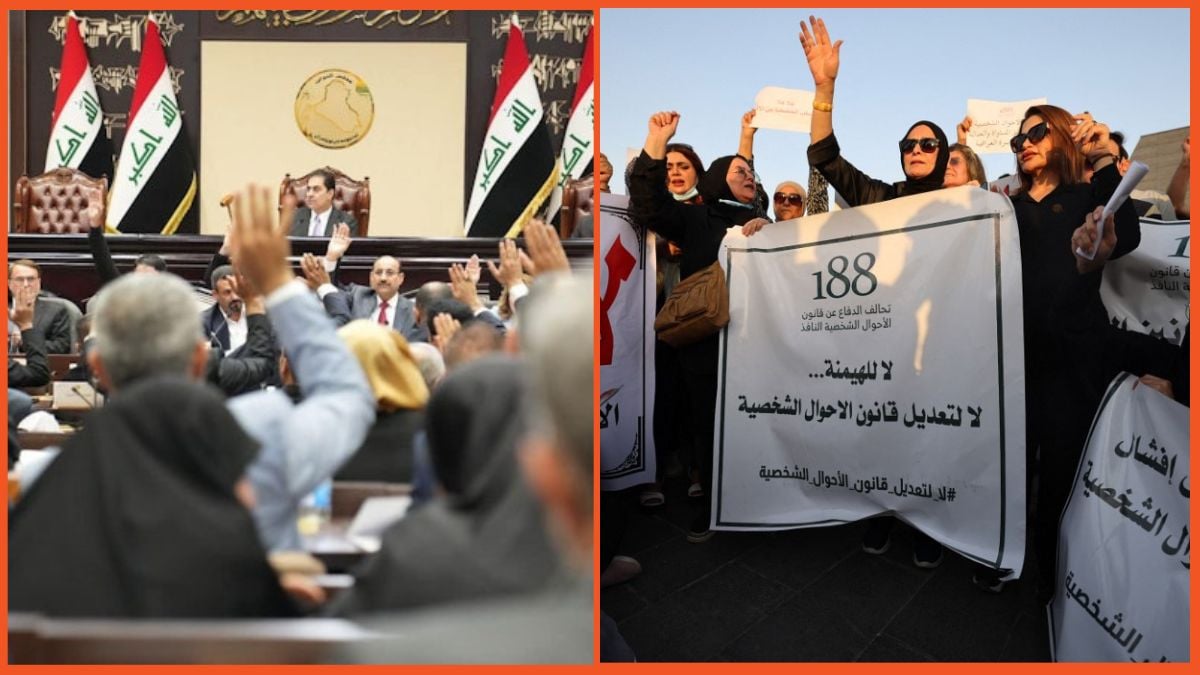The Iraqi government has introduced a bill in parliament that could possibly halve the legal marriage age for young girls from 18 to a mere 9 years old.
This proposal has been looming in Iraqi politics since at least 2014. Major branches of Islam represented in Iraq include Shia and Sunni, and as we know in democratic elections, parties often try to appeal across sectarian lines. That was the case when the bill was first introduced by the Fadila party, primarily aligned with the Shias, in 2014 — the party believed this change would make them more appealing to Shi’ite voters in the upcoming election. The policy change, however, failed.
The proposed policy would shift the Personal Status Law, which handles matters such as inheritance, divorce, alimony, and custody, from a mandatory secular court hearing to an option between a secular or religious court. In religious courts, hearings would be conducted under Sunni or Shi’ite legal systems. Under a Shi’ite interpretation, TIME reports, there are provisions allowing marriage for girls as young as nine.
This bill would greatly erode the Iraqi Personal Status Law, a landmark ruling from 1959 that granted Iraqi women some of the most progressive protections in the Middle East region, including the right to accept or deny a husband’s ability to marry additional wives. TIME also noted that the streamlined law that both Sunnis and Shi’ites had to abide by created a more unified nation.
On Aug. 4, 2024, lawmaker Ra’ad al-Maliki reintroduced the bill to parliament, receiving considerable support from Shi’ite government insiders. He defended the bill, claiming that assertions it would allow marriage for 9-year-olds were lies and that the bill simply aims to give people the option to apply God’s law in resolving their disputes.
Human rights groups remain unconvinced by al-Maliki’s defense. Amnesty International stated that if passed, the bill would violate girls’ and women’s rights. They reminded the Iraqi government that as a signatory of the UN’s Special Rapporteur on Violence Against Women and Girls, Iraq stands against, among other things, the sexual exploitation of women.
Perhaps the most vocal opposition has come from the local activist group Coalition 188, aptly named after the Personal Status Law — officially Law No. 188. They have led widespread protests across multiple cities against the proposed bill. Even when lawmakers suggested amendments to align the bill with the constitution, Coalition 188 members quickly rejected them, calling for the bill’s complete dismissal.
The thought of the Iraqi government potentially passing a law that could rob young girls of their childhoods is disgraceful by all accounts. So far, two sessions discussing the bill have been conducted in parliament with surprising support among MPs. In response, female MPs have formed a bloc to organize opposition and ensure the bill never becomes law.
For Sahar Al-Turfa, an Iraqi leader, the bill and its subsequent proposed amendments were unacceptable. She stated, “The proposed amendment will reinforce sectarianism and could reduce Iraqi women to a status akin to that of medieval times.” The people are clearly doing all they can to stop this draconian law from going any further.
